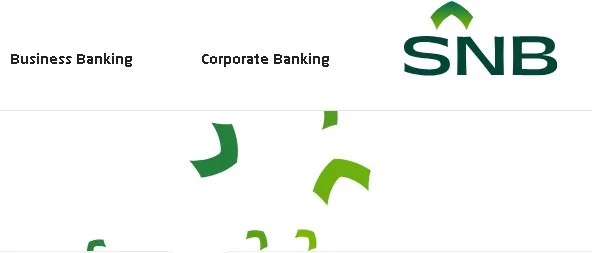Are you dreaming of owning a home, starting a business, or financing your education in Saudi Arabia? and you want to know how to get loan in saudi arabia?💼🏠📚 The key to turning these dreams into reality might just be a loan. But navigating the loan landscape in the Kingdom can feel like traversing a vast desert without a compass.
Don’t let confusion or uncertainty hold you back from achieving your financial goals! 🎯 Whether you’re a Saudi national or an expat, understanding the loan process is crucial. From Islamic banking principles to conventional loan options, the Saudi financial market offers a variety of solutions. But where do you start? How do you ensure you’re making the right choice?
In this comprehensive guide, we’ll walk you through everything you need to know about getting a loan in Saudi Arabia. We’ll explore the types of loans available, eligibility requirements, application processes, and even share tips to boost your approval chances. So, buckle up as we embark on this financial journey, demystifying the path to securing a loan in the Kingdom. 🚀💰

Types of Loans Available in Saudi Arabia
A. Personal loans
Personal loans in Saudi Arabia are versatile financial products designed to meet various individual needs. These loans can be used for purposes such as debt consolidation, home improvements, or unexpected expenses. Banks typically offer both secured and unsecured personal loans, with varying interest rates and repayment terms.
B. Home loans (mortgages)
Home loans, or mortgages, are essential for those looking to purchase property in Saudi Arabia. These long-term loans are secured by the property itself and often come with competitive interest rates. Many banks offer Sharia-compliant options to cater to the country’s Islamic banking principles.
C. Auto loans
Auto loans are specifically tailored for vehicle purchases. These loans usually have shorter terms compared to mortgages and may require a down payment. Some banks offer special deals in partnership with car dealerships, providing attractive financing options for both new and used vehicles.
D. Business loans
Business loans cater to entrepreneurs and companies seeking capital for growth, expansion, or working capital needs. These loans come in various forms, including term loans, lines of credit, and equipment financing. Many Saudi banks also offer specialized Islamic financing options for businesses.
| Loan Type | Typical Purpose | Security Required | Term Length |
|---|---|---|---|
| Personal | Various personal needs | Usually unsecured | 1-5 years |
| Home | Property purchase | Secured by property | 15-30 years |
| Auto | Vehicle purchase | Secured by vehicle | 1-7 years |
| Business | Business financing | Varies | Flexible |
Now that we’ve covered the main types of loans available in Saudi Arabia, let’s explore the eligibility requirements for obtaining these financial products.

Eligibility Requirements for Saudi Loans
Now that we’ve explored the types of loans available in Saudi Arabia, let’s delve into the eligibility requirements you’ll need to meet to secure a loan. Understanding these criteria is crucial for a successful application.
A. Age and residency status
- Minimum age: 21 years old
- Maximum age: Typically 60-65 years (varies by bank)
- Residency: Saudi national or expatriate with valid Iqama
B. Income and employment verification
- Minimum monthly salary: SAR 3,000-5,000 (varies by bank)
- Employment duration: Usually 3-6 months with current employer
- Salary transfer: Many banks require salary transfer to their accounts
C. Credit history and credit score
- Clean credit history preferred
- No defaults or bounced checks in the past
- Positive SIMAH (Saudi Credit Bureau) report
D. Debt-to-income ratio
| Debt-to-Income Ratio | Loan Approval Likelihood |
|---|---|
| Below 33% | High |
| 33% – 43% | Moderate |
| Above 43% | Low |
Banks typically prefer a debt-to-income ratio below 33% for optimal loan approval chances. This ratio is calculated by dividing your monthly debt payments by your gross monthly income.
Meeting these eligibility requirements significantly improves your chances of loan approval in Saudi Arabia. However, keep in mind that specific criteria may vary among different banks and financial institutions.

Steps to Apply for a Loan in Saudi Arabia
Now that you understand the types of loans available and eligibility requirements, let’s explore the step-by-step process of applying for a loan in Saudi Arabia.
A. Gather necessary documents
Before starting your loan application, collect the following essential documents:
- Valid Saudi ID or Iqama
- Proof of income (salary certificate or bank statements)
- Employment letter
- Utility bills for address verification
B. Compare loan offers from different banks
Research and compare loan offers from various banks to find the best terms. Consider factors such as:
| Factor | Importance |
|---|---|
| Interest rate | High |
| Loan tenure | Medium |
| Processing fees | Medium |
| Early settlement charges | Low |
C. Submit loan application
Once you’ve chosen a bank, submit your loan application either online or in-person at a branch. Provide all required information accurately to avoid delays.
D. Undergo credit assessment
The bank will evaluate your creditworthiness by:
- Checking your credit score
- Verifying your income and employment
- Assessing your debt-to-income ratio
E. Loan approval and disbursement
If approved, review the loan agreement carefully before signing. Once signed, the bank will disburse the funds to your account, typically within 3-5 business days.
With these steps completed, you’re now ready to explore the top banks offering loans in Saudi Arabia.

Top Banks Offering Loans in Saudi Arabia
Now that we’ve covered the application process, let’s explore some of the top banks in Saudi Arabia that offer various loan options. Understanding these institutions can help you make an informed decision when seeking financial assistance.
A. Saudi National Bank (SNB)
SNB, formed from the merger of National Commercial Bank and Samba Financial Group, is the largest bank in Saudi Arabia. They offer a wide range of loan products, including:
- Personal loans
- Home loans
- Auto loans
- Small business loans
B. Al Rajhi Bank
Al Rajhi Bank is known for its Sharia-compliant banking services and offers:
- Personal finance
- Home finance
- Car finance
- SME financing
C. Riyad Bank
Riyad Bank provides both conventional and Islamic banking services, with loan options such as:
- Personal loans
- Mortgage loans
- Auto loans
- Business loans
D. Saudi British Bank (SABB)
SABB, a partnership between HSBC and Saudi shareholders, offers various financing solutions:
- Personal loans
- Home loans
- Auto loans
- Business finance
Here’s a comparison of these banks’ loan offerings:
| Bank | Personal Loans | Home Loans | Auto Loans | Business Loans |
|---|---|---|---|---|
| SNB | ✓ | ✓ | ✓ | ✓ |
| Al Rajhi | ✓ | ✓ | ✓ | ✓ |
| Riyad Bank | ✓ | ✓ | ✓ | ✓ |
| SABB | ✓ | ✓ | ✓ | ✓ |
Each of these banks has its unique features and benefits. It’s essential to compare their offerings, interest rates, and terms before making a decision. In the next section, we’ll delve into understanding loan terms and conditions to help you make a more informed choice.
Understanding Loan Terms and Conditions
Now that we’ve explored the top banks offering loans in Saudi Arabia, let’s delve into the crucial aspect of understanding loan terms and conditions. This knowledge is essential for making informed decisions about your financial future.
Interest Rates and APR
Interest rates in Saudi Arabia typically range from 1.5% to 6%, depending on the loan type and your creditworthiness. It’s important to understand the difference between nominal interest rates and Annual Percentage Rates (APR):
| Term | Definition |
|---|---|
| Nominal Interest Rate | The basic rate charged on the loan |
| APR | The total cost of borrowing, including fees and charges |
Loan Tenure and Repayment Options
Loan tenures in Saudi Arabia can vary widely:
- Personal loans: 12 to 60 months
- Mortgage loans: Up to 30 years
- Auto loans: 12 to 60 months
Most banks offer flexible repayment options, including:
- Fixed monthly installments
- Balloon payments
- Step-up or step-down payments
Fees and Charges
Be aware of additional costs associated with loans:
- Administration fees
- Processing fees
- Early settlement charges
- Late payment penalties
Collateral Requirements
Collateral may be required depending on the loan type:
- Secured loans (e.g., mortgages): Property as collateral
- Unsecured loans (e.g., personal loans): No collateral, but higher interest rates
Understanding these terms will help you navigate the loan application process more effectively. Next, we’ll explore some valuable tips for improving your chances of loan approval in Saudi Arabia.
Islamic Banking and Sharia-Compliant Loans
In Saudi Arabia, Islamic banking principles play a significant role in the financial sector. Sharia-compliant loans offer alternatives to conventional interest-based lending, adhering to Islamic principles. Let’s explore three common types of Sharia-compliant financing options:
A. Murabaha Financing
Murabaha is a cost-plus financing arrangement where the bank purchases an asset and sells it to the customer at a marked-up price. This method is commonly used for:
- Home financing
- Vehicle purchases
- Business equipment acquisition
| Feature | Description |
|---|---|
| Structure | Bank buys asset, sells to customer at higher price |
| Payment | Fixed installments over agreed period |
| Transparency | Cost and profit margin clearly stated |
B. Ijara Loans
Ijara is similar to a lease-to-own arrangement, often used for:
- Real estate financing
- Equipment leasing
The bank purchases the asset and leases it to the customer, who pays rent and gradually acquires ownership.
C. Tawarruq Financing
Tawarruq, also known as commodity murabaha, involves:
- Bank buys a commodity
- Sells it to the customer on deferred payment
- Customer sells the commodity for cash
This structure is used for:
- Personal financing
- Working capital loans
- Credit card alternatives
These Sharia-compliant options provide Muslims with ways to access financing while adhering to their religious principles. As we move forward, it’s crucial to understand the specific terms and conditions associated with each type of Islamic financing product.
Conclusion
Navigating the loan landscape in Saudi Arabia can be a complex process, but with the right information and preparation, it becomes much more manageable. From personal loans to Islamic banking options, Saudi Arabia offers a diverse range of financial products to meet various needs. Understanding the eligibility requirements, application processes, and terms and conditions is crucial for a successful loan application.
Remember to carefully research and compare offerings from different banks, ensuring you choose a loan that aligns with your financial goals and capabilities. Whether you opt for a traditional loan or a Sharia-compliant option, being well-informed and prepared will significantly improve your chances of approval. Take proactive steps to enhance your credit profile and gather all necessary documentation to streamline your loan application process and secure the financial support you need in Saudi Arabia.
